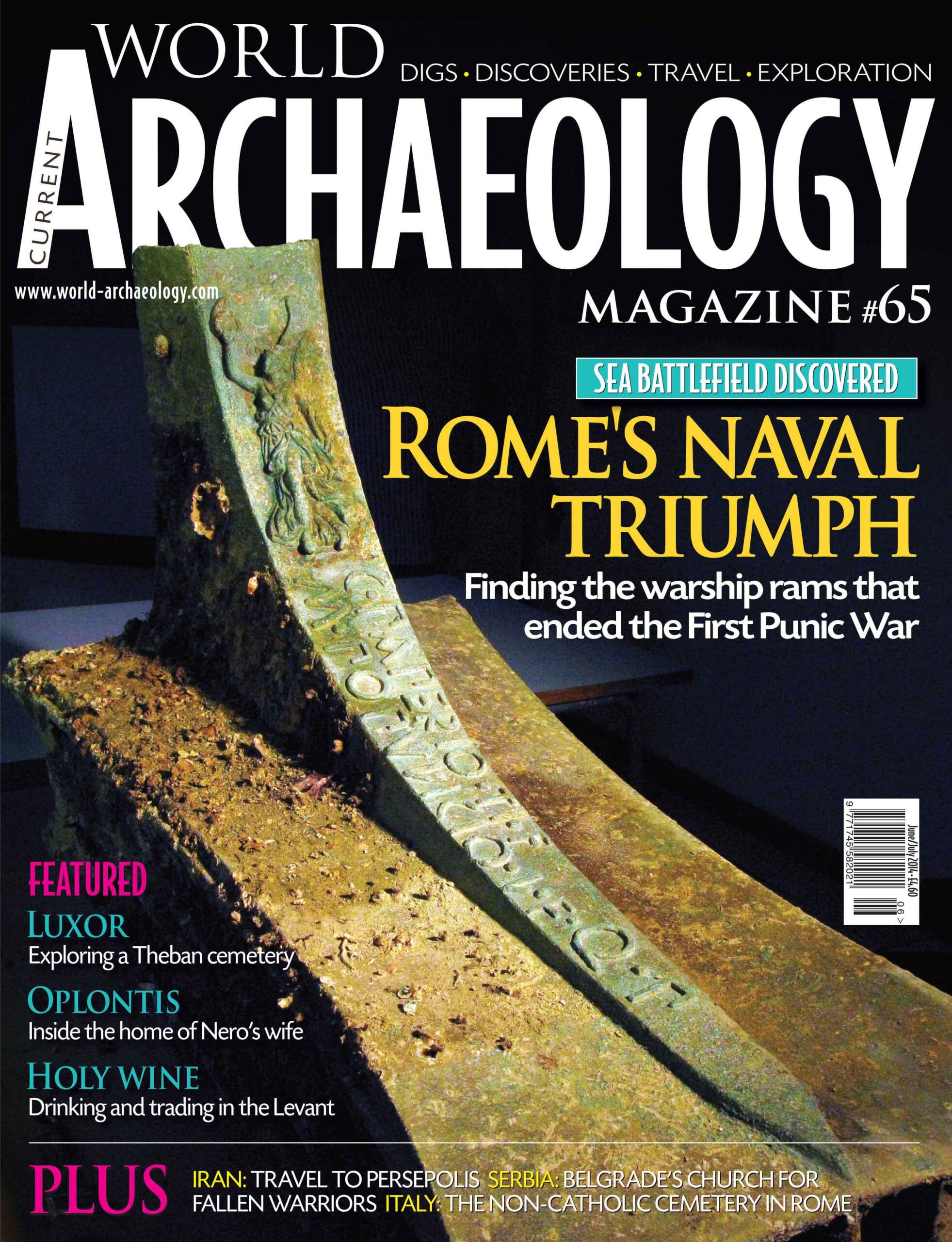Finding the archaeological evidence for a major turning point in history is something few archaeologists will experience. Finding the remains of a sea battle has never been done. Archaeologists working off the coast of Sicily have achieved both when they recovered the bronze rams from the warships lost at the Battle of the Egadi Islands. This was the battle that marked an end to the lengthy First Punic War, and changed the fortunes of the two protagonists: Carthage, once the great power in the region, was sent packing; and the victors, Rome, began their mighty ascent to domination in the Mediterranean. Our cover feature reveals a battlefield landscape beneath the waves, and the battle-scarred bronze rams of warships that did not survive the day’s conflict in 241 BC.
Nearly a 1,000 years later, as the last of Rome’s influence ebbed away, Reccopolis was founded in Visigothic Spain. Reccopolis is a rarity: few new towns are known from this time. So, what does a new-build look like during this period of transition?
For more than three millennia, a community in Luxor has lived with the dead: el-Qurna grew on and around the ancient necropolis at Thebes. Now, former residents of the recently demolished hamlet have joined archaeologists in a project to record both modern and old remains.
Next door to the sumptuous Villa Poppaea at Oplontis, near Pompeii, archaeologists have found the remains of a wine emporium. We take a look at both.
Did Christianity affect the wine trade in the Levant? Though boosted by the rise in popularity of this new religion, when Christianity in the region declined, so too, it seems, did its taste for wine.

